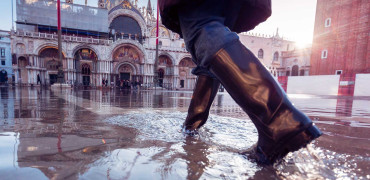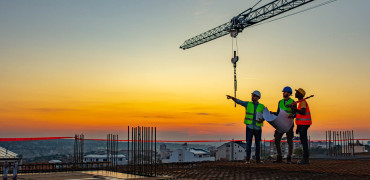In a recent article for Elemental Digital, the editor, Andrew Gaved called me “the Grant Shapps of HVAC” which I thought was an interesting reference.
I’m pretty sure I’ve never stood as MP for Hatfield and Welwyn – the constituency of our Headquarters, and I’ve been with Mitsubishi Electric (nearly 20 years) for longer than he has been constituency MP (18 years)
However, I think the comparison relates to the fact that I may have had a similar number of jobs as he has, which I cannot deny (However, I have used the same name throughout!).
Global finance is now insisting on sustainability for businesses wanting investment
A holistic approach
I came to my current role from a sales background and have then been involved in our Branch network, our consultancy teams, our Marketing department and, in 2007, I helped develop what we called ‘Green Gateway’.
We tried to create a space where construction professionals could engage with each other to discuss the key issues of reducing carbon emissions and energy consumption at a strategic level.
The approach was aimed at architects, developers, designers and facility managers in both public and private sector organisations and looked at some of the major legislative and environmental challenges facing us all.
It took a while for some to realise that as a manufacturer, we weren’t simply trying to push products on them, but were actively looking for engagement on how we all could collaborate to address the ‘bigger picture’.
Evolution not revolution
As a manufacturer that is now over a century old, we have realised that if we want to sustain our business over the next 100 years, then we must adopt a more sustainable approach to how we conduct that business.
We also understand that buildings account for 40 per cent of UK energy use and produce a third of all carbon emissions so if we can find ways to lower consumption, we can help everyone reduce their carbon footprint.
Our role as a HVAC manufacturer puts us in a pivotal position to really make a difference.
We realise that as the world moves to net zero, heating and cooling are major consumers of energy in any building.
Changing these to more sustainable systems will have a dramatic impact in helping transform society without fundamentally changing the way we all want to live.
Early doors
The development of Green Gateway helped us to have conversations with parts of the construction industry that we’d never spoken to before and enabled us to highlight the importance of HVAC in the life of a building.
This effectively meant sustainability becomes a discussion point at the start of any project, rather than being an afterthought.
We realised that we had a lot of experts that knew more about legislation and net zero than many in the construction industry, so we set about finding ways to engage with people to talk about decreasing carbon emissions, increasing energy efficiency, F-Gas, GWP, energy labelling, etc.
By creating the space for meaningful discussions, we were able to highlight how companies, working together, can improve efficiency long before net zero properly became a thing.
Stop burning stuff!
Modern life is a huge consumer of energy, and we have to do something about that. At the same time, we can’t simply go back to living in caves especially in Britain, where we occasionally have all four seasons in one day.
What we do need to do though is reduce the energy we use and find ways to produce it while minimising the carbon emissions. This is where we need to understand that we are now at the end of gas – We simply need to stop burning stuff!
It’s also worth realising that we have solutions available right now that can replace gas immediately to help us move away from our reliance on fossil fuels.
There are heat pumps that can produce hot water up to 90°C and available in any size from a 5kW system for a small modern home, right up to a 1000+kW heat pump chiller that will service a school, a leisure centre, a hospital, or an entire university campus.
Challenges and opportunities
There are challenges along the way to net zero, such as how we retrofit the millions of existing homes that need thermal upgrades to really benefit from a heat pump.
We also need to address the issue of how we train enough engineers on the subtle differences between gas heating and heat pumps.
But there are also significant opportunities available right now as many in the commercial sector are realising through two methods of funding.
Follow the money
Firstly, the government’s Public Sector Funding Scheme (otherwise known as Salix after the body administering it) has and is transforming public buildings and helping to decarbonise schools, libraries, sports facilities and local authority buildings across the land.
Secondly, global finance is now insisting on sustainability for businesses wanting investment in new or refurbished commercial buildings.
That means that businesses are rapidly moving away from gas and looking at how to install heat pumps and more sustainable systems over the next few years.
I find this all incredibly exciting as I think there are huge opportunities for all of us in the construction industry to really help the nation reduce emission and reach net zero.
At the same time, it’s important to realise that many remain blissfully unaware of the issues so I don’t know about you, but I will continue to bang the drum and raise awareness of the climate crisis and the important role we all have to play in tackling it.
Martin Fahey is Head of Sustainability for Mitsubishi Electric UK & Ireland




